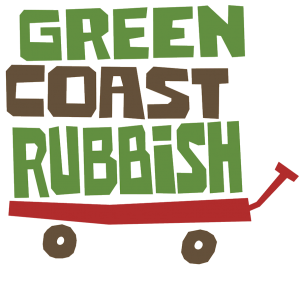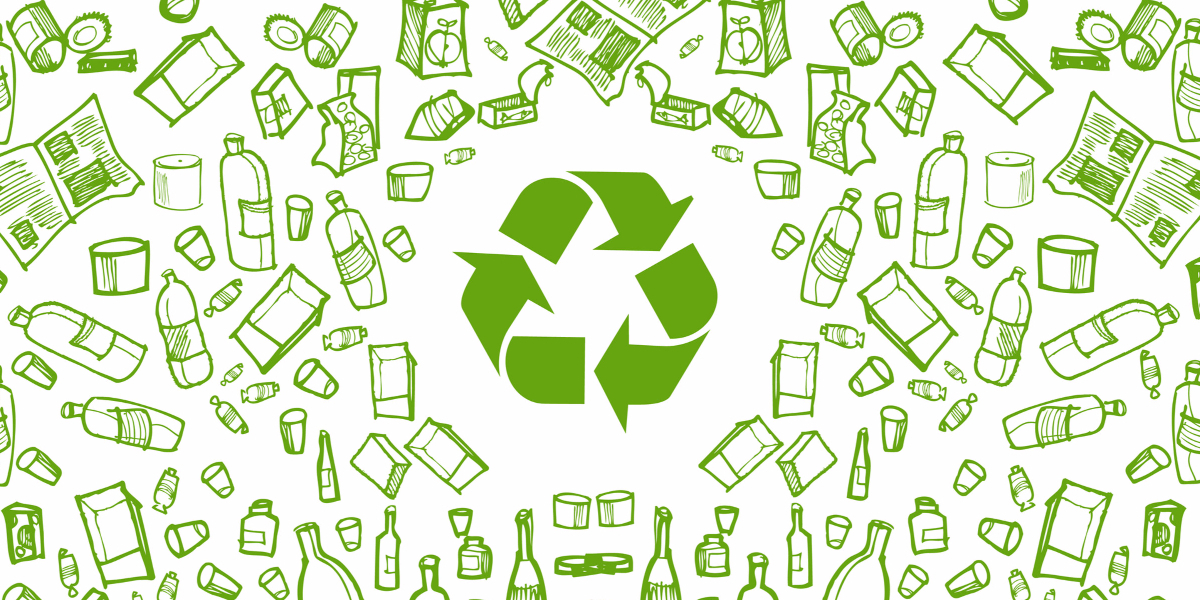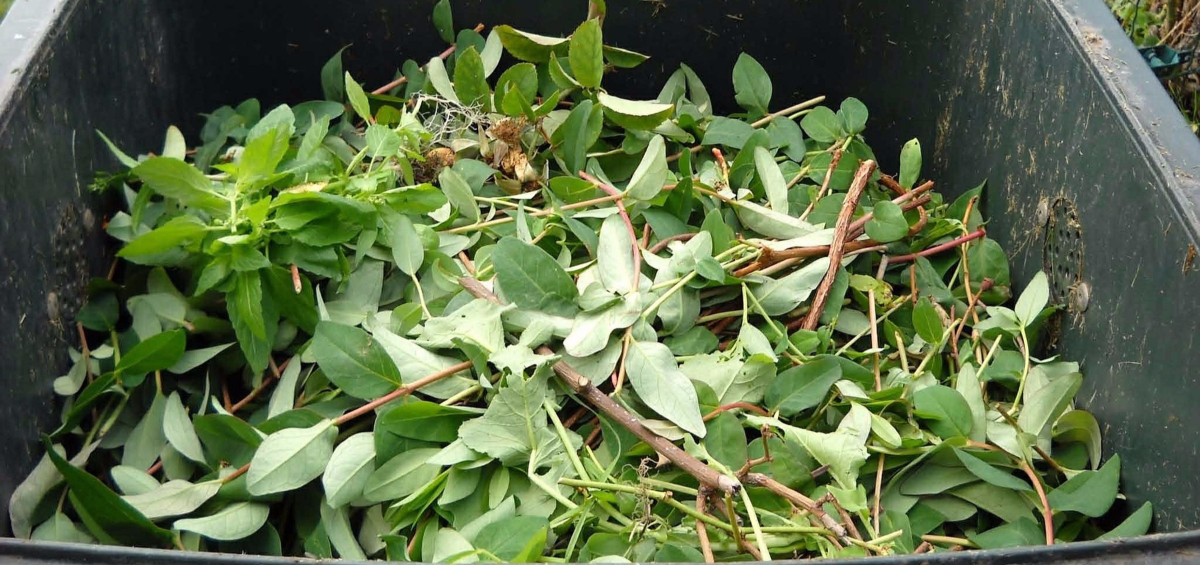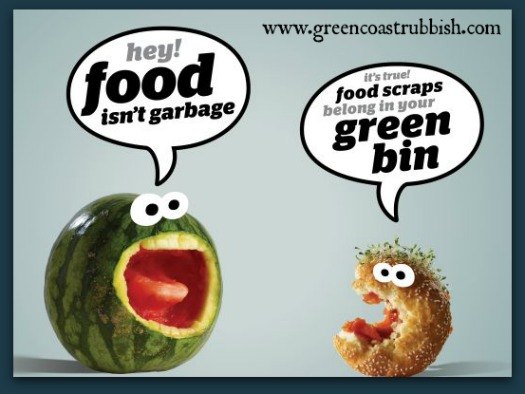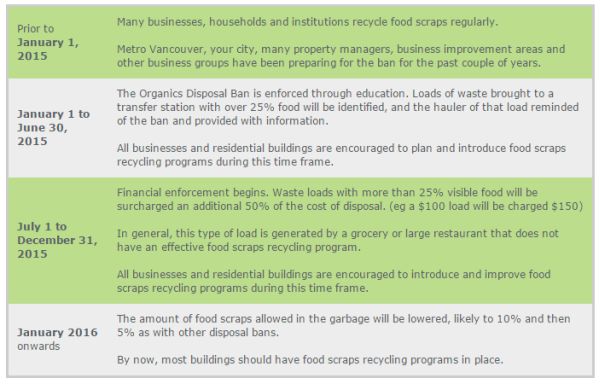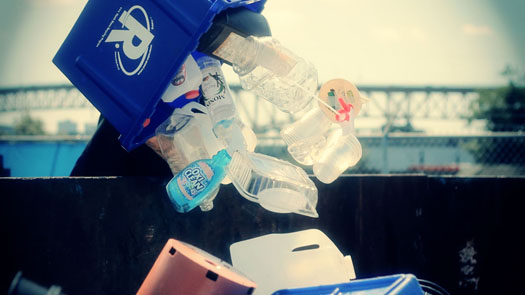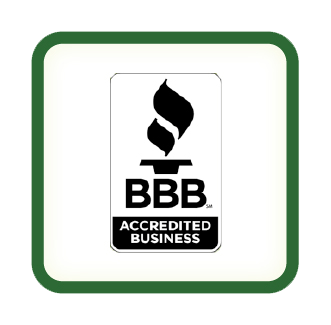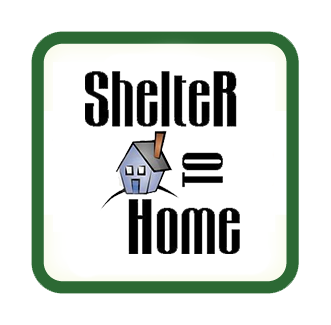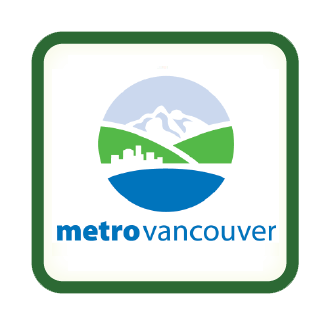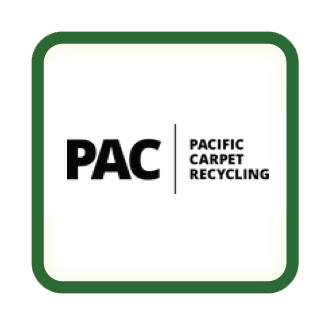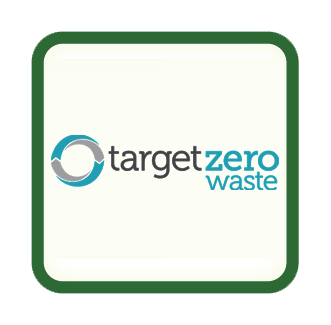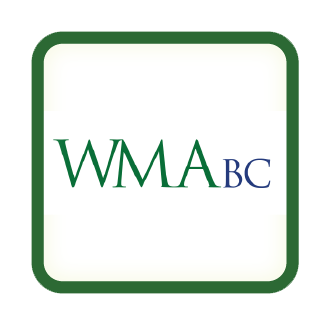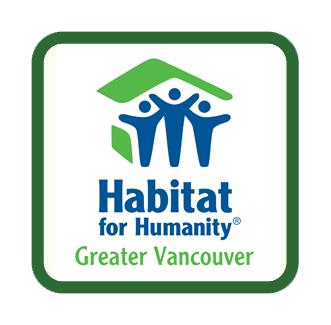Posts
Tips and Tricks for Composting in Vancouver
/in Commercial Rubbish Removal and Recycling, community, composting, Green Buildings, Organic Waste, Recycling/by Green Coast RubbishOrganics Disposal Ban Launches in Metro Vancouver
/in Commercial Rubbish Removal and Recycling, composting, Organic Waste, Recycling/by Green Coast RubbishRecycling food scraps is routine for many Metro Vancouver residents and businesses. However, the new organics disposal ban in effect as of January 1, 2015 now requires all households, businesses, and institutions to separate food waste from their garbage.
Why the ban? You may be surprised to learn that almost a third of the food we buy ends up in the garbage, amounting to 40% of residential garbage in the landfill. This slowly decaying food creates methane gas which is known to cause global warming.
While the majority of single family homes in Metro Vancouver are already recycling food and garden waste, the organics disposal ban will ensure that residential buildings (such as apartments and condos) are starting food scrap recycling programs if they haven’t already done so. Another major focus for the ban this year is to ensure that large restaurants and grocery stores are diverting organics from their garbage.
In summary, all residents, businesses and institutions are being asked to introduce food scraps recycling programs this year to meet the regional goals of recycling 70% of the waste in Metro Vancouver in 2015 and 80% by 2020.
Important Dates and Phases
The organics disposal ban is being introduced in stages over the coming months and includes an educational focus for the first 6 months, followed by the implementation of financial penalties in the latter half of 2015 as follows:
What Items are Banned?
Food scraps recycling programs should include the following items which are now banned from the garbage:
• Vegetables and fruits
• Raw food, plate scrapings, leftovers
• Packaged foods (remove packaging)
• Meats, fish, bones and seafood shells
• Pasta, bread and rice
• Dairy, eggshells, sauces, dressings
• Paper egg cartons
• Paper towels, unlined paper cups/plates
• Food-soiled napkins/pizza boxes/newspaper
• Kraft/paper bags used to collect food scraps
• Waxed cardboard boxes
• Coffee grounds/filters and tea bags
• Wooden utensils, chopsticks, stir sticks, and toothpicks
Resources
For more information on the organics disposal ban, check out the following links:
The Recycling Council of BC is available to answer questions and provides information on food scraps recycling programs and contacts for commercial and multi-family dwelling organics pick-up services. Call 604-RECYCLE (604-732-9253).
Metro Vancouver Organics Ban: Overview
Businesses: Q&A on Metro Vancouver’s Organics Disposal Ban
Restaurants : Tools and Resources, Case Studies, Frequently Asked Questions, Tips, Signage & Artwork
Grocers: Tools and Resources, Case Studies, Frequently Asked Questions, Tips, Signage & Artwork
Apartments & Condos: Tools and Resources, Case Studies, Frequently Asked Questions, Tips, Signage and Artwork
Residents: Tools and Resources, Case Studies, Frequently Asked Questions, Tips and Posters
Changes to Blue Box Recycling in Vancouver
/in Recycling/by Green Coast RubbishVancouver recently has made some new changes to their recycling program. This is excellent news for Vancouverites, as we can now add even more items to our blue boxes.
All these little things add up to so much waste that is being kept out of our landfills. Combined with the recent changes to the composting program, Vancouver is taking great steps toward becoming an even greener city. We at Green Coast are ecstatic about the changes and look forward to seeing more recyclable materials added to this program.
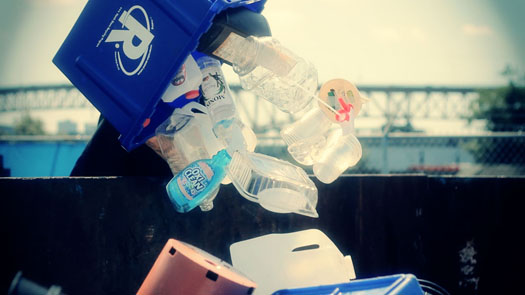
Things you can now add into your blue box are:
- Milk cartons
- Tetra Paks
- Ice Cream containers
- paper cups
- paper containers
- frozen juice cans
- plastic clamshell packaging
- paper pet food bags
- plastic bags
- Styrofoam *North Vancouver Recycling Depot
For a complete list of items and descriptions of what can and can’t be put into your blue box, check out the City of Vancouver’s comprehensive list here. Another great resource for information about recycling in BC can be found here at Multi Material BC. Happy recycling!
Disposal Ban of Organics in Metro Vancouver
/in Commercial Rubbish Removal and Recycling, community, composting, Organic Waste/by Green Coast RubbishVancouver continues to move toward its goal of becoming the Greenest City by 2020. By imagining solutions and opportunities that can help residents and businesses to more effectively deal with household waste, they get closer every year. It’s estimated that nearly 35-40% of everything that we throw away is food waste; if diverted into a composting system, this adds up to a substantial amount kept out of our landfills. Which is why, starting in 2015, Metro Vancouver will be instating a ban on disposing organics and food waste into regular garbage bins.

There are huge community and environmental benefits to composting. As the food waste breaks down through natural processes, it can create valuable fertilizers that can help to enrich the soil with potassium, nitrogen, and phosphorus. It reduces overall greenhouse gas emissions and lengthens the life of our existing landfills, saving valuable space and local resources.
For some eye-opening stats on the amount of organic waste produced every day, as well for solutions on how to responsibly dispose of compastable waste visit our past blog Getting Serious About Organic Waste Reduction. If you are interested to learn more about the process that your organic waste goes through when it is processed you can check-out Part 2 of our Organic Waste Reduction blog.
Some things that can go into the compost bin:
- Fruit & vegetable scraps
- Eggshells, dairy
- Meat & fish bones
- Teabags
- Coffee filters & grounds
- Breads, pasta, rice
- Food soiled paper products (pizza boxes, napkins, cardboard egg cartons)
- Grass, leaves, weeds, plants
- Cooked food & grease
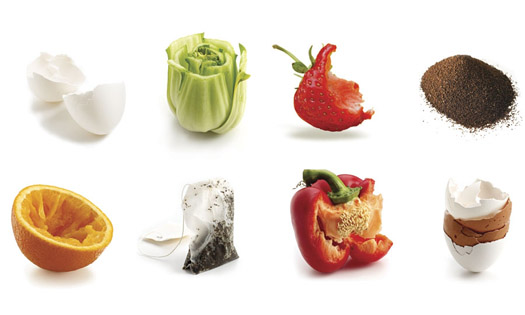
Some prohibited items:
- Any type of plastic (including compostable/biodegradable plastic bags)
- Rocks, soil
- Diapers
- Animal waste
- Wood products & lumber
- Branches bigger than 10 cm (4″) in diameter, and more than 0.5m (1.6ft) in length
These developments are very much in-line with the ideology of Green Coast Rubbish. We’ve seen the evidence firsthand of how much these compostable items can add up – in 2013 alone, we diverted 30.39 tonnes of organic material! By actively working together toward creating composting solutions with Metro Vancouver, we can all contribute to the success of this important program in our communities.
For more information about composting and the upcoming ban on organics, check out the Metro Vancouver website, and the City of Vancouver’s Green Bin Program.
